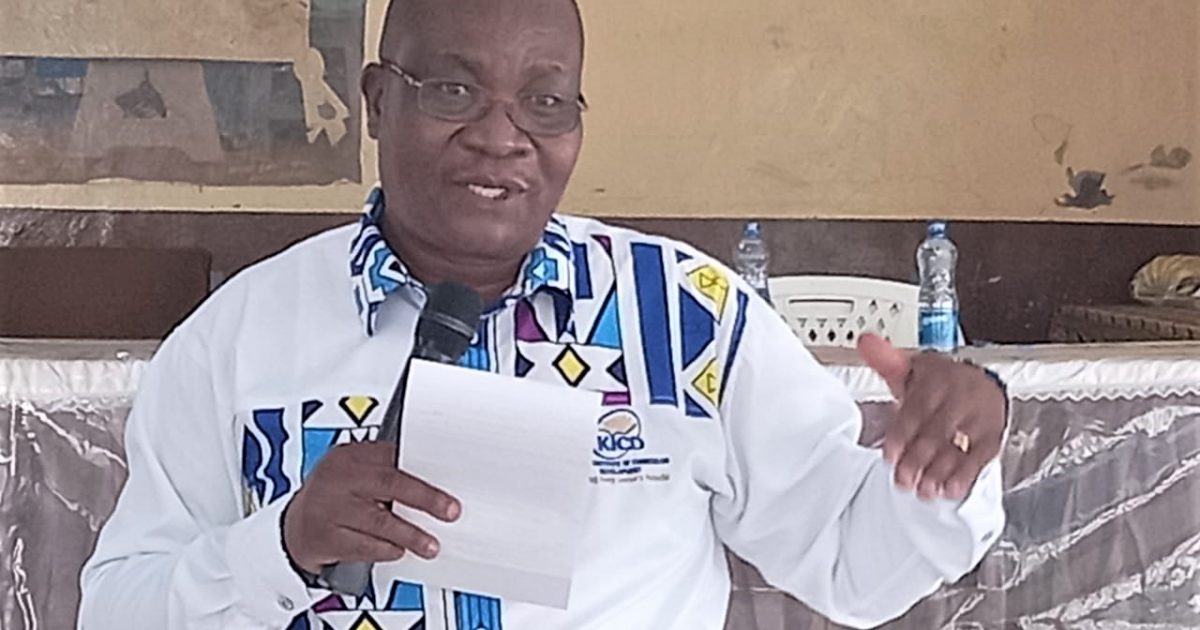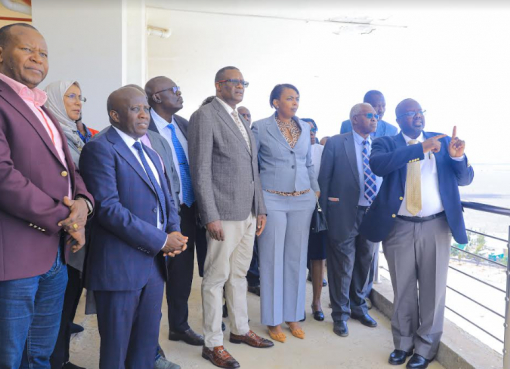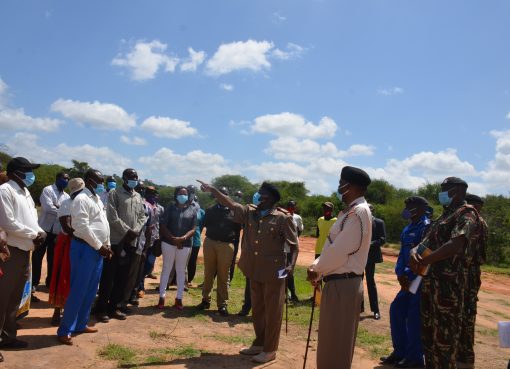Although many parents may arguably claim that the inception of Competence Based Curriculum (CBC) in the education system was a burden to learners, experts in the contrary insists that it presented a lesser burden compared to the 8-4-4 system that is being phased out.
As such, CBC is about formative assessment catering for 60% of the total marks with grade 4, 5 and 6 accounting for 20 % each with the remaining 40% obtained from the final assessment in grade 6 just to determine whether there is consistency in performance.
Kenya Institute of Curriculum Development (KICD), Chief Executive Officer, Prof. Ochieng’ Ong’ondo gave the insight while presiding over a training for Quality Assurance Officers, County CBC committees and education stakeholders at St. Teresa’s Girls, Kisumu.
Prof. Ong’ondo stated that unlike the past Kenya National Examinations Council (KNEC) administered examinations, there will henceforth, be no policemen with guns and invigilators subjected to sleepless nights in the name of ensuring security of the exercise.
He said it was ridiculous that there were no more challenges of exam cheating in Kisumu and its environs yet in certain part of South Nyanza the vice still persists despite the fact that besides the invigilators KNEC has had to send in monitors just to be sure.
The don also chastised some of the prayer sessions conducted for candidates in schools and songs loaded with messages that depict exams as a matter of life and death.
“It is unfortunate that such prayers and songs declare that the candidates are going to war which is actually far from the truth. This is the misconception that CBC has set out to correct and demystify while exercising the perceived spirits and unfounded threats,’ he explained.
Prof. Ong’ondo said CBC has brought out the aspect of remote learning which became quite useful during the COVID-19 period as the government opted to keep learners positively engaged for over 9 months in order not to completely forget what they learnt earlier.
He lauded Kenya for having emerged second best in Africa after Egypt and has even overtaken South Africa soon after having introduced Radio, Television and online lessons which have greatly supplemented the normal school work.
“At Edu TV for example, we have lessons every day for learners in grade 4, 5 and 6 apart from offering a digital platform on KICD cloud for all subjects to effectively supplement normal lessons in schools. For online, the government provides free data to do so,” he said.
Prof. Ong’ondo confided that they started parental engagement to demystify claims from some quarters that CBC has conferred a heavy burden to parents some of whom have technically disappeared from their homes to escape from helping their children do homework.
He made the remarks after a section of participants apportioned blame to parents who have since abdicated their responsibility of supporting the young learners do their homework apart from helping inculcate discipline but instead transferred this noble course to teachers.
They also attributed this to the genesis of persistent burning of secondary schools which was deeply rooted and so required concerted efforts to curb it before the vice spirals into a full scale disaster in the education sector.
Prof. Ong’ondo described the CBC curriculum as visionary considering that the government has committed colossal resources to facilitate its success by ensuring public schools connectivity to power and internet services apart from the tablets and other gadgets for learners.
He argued that there is no society or education system that is equal globally, paraphrasing the Cabinet Secretary for Education, Prof. George Magoha who made numerous inspection tours of schools across the country.

The don also appealed to parents to report cases of cyber bulling, learners watching inappropriate materials such as pornography or visiting sites that are not intended for them, especially when they access smartphones belonging to parents and friends.
The KICD Chief Executive Officer disclosed that they have already launched the Kenya Education Cloud (KEC) to help ensure learners safety and provided the website as www.kec.ac.ke which should be visited by stakeholders seeking important information.
Participants also expressed concern over the slow uploading and downloading of assessment tests and results as the system often gets clogged owing to the massive number trying to access it for various reasons.
They proposed that KNEC should henceforth print the materials to level the playing field between the public and private schools.
Security in public schools also emerged as a major challenge after words spread fast that more than 40% of the gadgets supplied by the national government have been stolen. In Kisumu County for example, robbers resorted to killing elderly watchmen who tried to block them.
They also appealed to the government to ensure that certain vote heads should not be pegged on individual learners and added that there was urgent need to review financial allocation to primary schools as a way forward.
Prof. Ong’ondo said in view of COVID-19 the government has had challenges financing learning institutions apart from capitation of Ksh.1400 per child, urging school heads and management committees to persuade parents to supplement government funding.
Kisumu County Director of Education, Isaac Atebe told the forum that there are 850 primary schools (616 public schools while 234 are private) having a total of 297,100 pupils combined.
Atebe added that there are 839 public Early Childhood Development Centers (ECDs), 612 private ones with a further 230 public secondary schools and 71 private schools in this category with a total of 107000 students.
By Joseph Ouma





